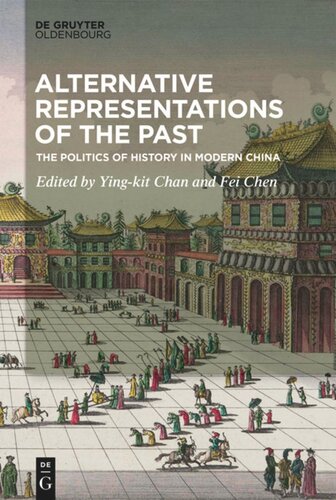

Most ebook files are in PDF format, so you can easily read them using various software such as Foxit Reader or directly on the Google Chrome browser.
Some ebook files are released by publishers in other formats such as .awz, .mobi, .epub, .fb2, etc. You may need to install specific software to read these formats on mobile/PC, such as Calibre.
Please read the tutorial at this link: https://ebookbell.com/faq
We offer FREE conversion to the popular formats you request; however, this may take some time. Therefore, right after payment, please email us, and we will try to provide the service as quickly as possible.
For some exceptional file formats or broken links (if any), please refrain from opening any disputes. Instead, email us first, and we will try to assist within a maximum of 6 hours.
EbookBell Team

4.0
16 reviewsThe relationship between the Chinese nation and its recent past has been fraught with contradictions and tensions. This collection aims to make sense of this complex relationship and challenge the prevalent state-centric and nation-centric modes of history writing on modern China. It explores alternative representations of the past and the salience of political conflicts and competitive histories in China, highlighting the paradoxical similarities in such representations of the past from the late nineteenth century to the present. Ultimately, this book contributes to the ongoing discussion on the politics of interpreting the past and its many manifestations in both China and other societies.
“This volume will contribute to the scholarly debate on the use of the past in national history.”
Tze-ki Hon, City University of Hong Kong
“Alternative Representations of the Past presents a collection of essays that critically examine the ways in which the contradicting and contested enterprise of history has been politicized in China. As ‘memory is past made present’, the meticulous re-evaluation of Chinese history by the contributors of this volume promises to offer readers valuable insights into contemporary China.”
Chang-Yau Hoon, Associate Professor and Director, Centre for Advanced Research, Universiti Brunei Darussalam